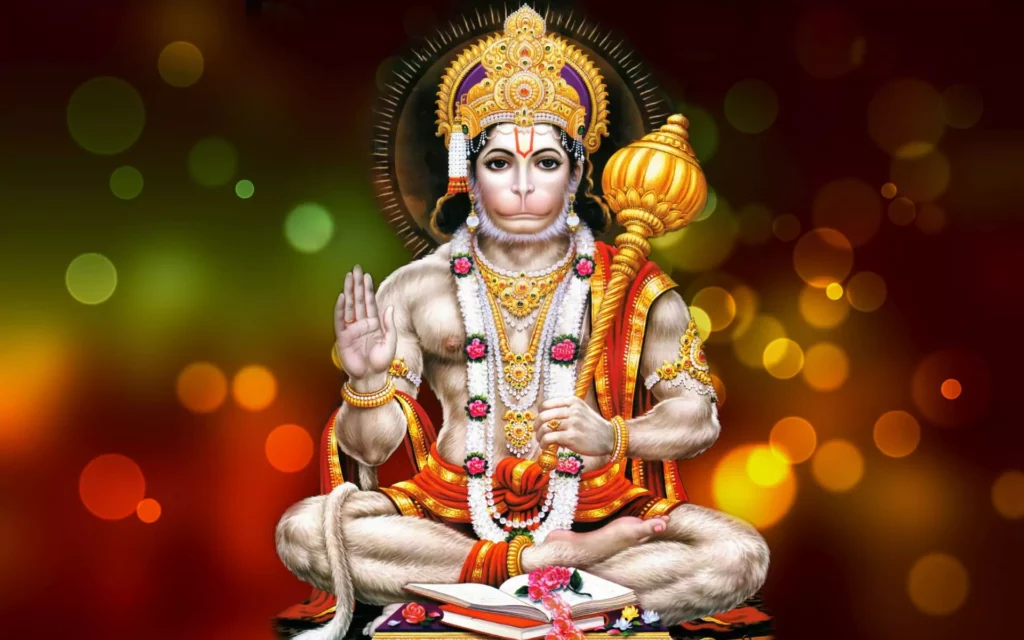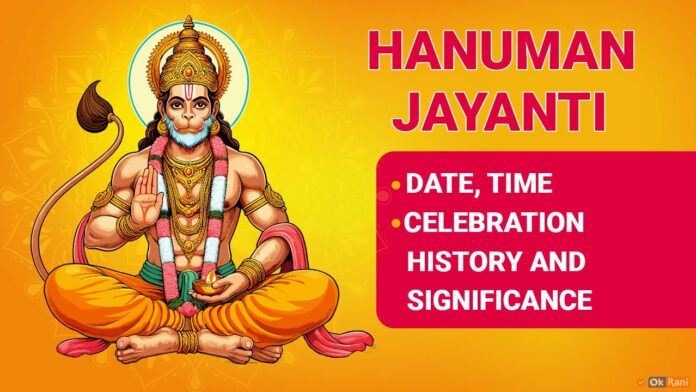Hanuman Jayanti is a Hindu festival that celebrates the birth of Lord Hanuman. Lord Hanuman is famous for his devotion to Lord Rama and symbolizes strength and loyalty. In 2024, the festival will take place on the full moon day of Chaitra Shukla Paksha, during the Hindu month of Chaitra.
Hanuman Jayanti is an important day for those who worship Lord Hanuman. On this day, people believe that honoring Hanuman brings them strength, wisdom, and protection. Devotees celebrate by offering prayers and chanting hymns dedicated to Lord Hanuman.
Many people visit Hanuman temples on Hanuman Jayanti to participate in special prayers and rituals. Some offer flowers, sweets, and other offerings to Hanuman. The festival is a time for people to seek blessings and express gratitude to Lord Hanuman.
Table of Contents
Hanuman Jayanti 2024 Date
Hanuman Jayanti in 2024 will be celebrated on Tuesday, April 23. The full moon day of Chaitra month starts at 3:25 am on April 23 and ends at 5:18 am on April 24.
Hanuman Jayanti is mainly celebrated on the full moon day of Chaitra month. This year, the main celebration of Hanuman Jayanti will be held on the morning of April 23, 2024.
Devotees can worship Lord Hanuman early in the morning to seek his blessings. It is considered an auspicious time for prayer and rituals to honor Lord Hanuman.
Hanuman Jayanti Celebration 2024

Hanuman Jayanti is celebrated on the full moon day of Chaitra month to honor the birth of Lord Hanuman, also known as the Vanara God. People in different regions celebrate Hanuman Jayanti at other times of the year based on their beliefs and the calendars they follow. In North Indian states, the most popular time to observe Hanuman Jayanti is during Chaitra Purnima.
In Andhra Pradesh and Telangana, Hanuman Jayanti is celebrated over 41 days, starting on Chaitra Purnima and ending on the tenth day during Krishna Paksha in Vaishakha month. Devotees in Andhra Pradesh begin 41 days of devotion on Chaitra Purnima and end it on Hanuman Jayanti day.
In Tamil Nadu, Hanuman Jayanti, known as Hanumath Jayanthi, is observed during Margashirsha Amavasya. This typically falls in January or December in the Gregorian calendar.
In Karnataka, Hanuman Jayanti, known as Hanuman Vratam, is observed on Shukla Paksha Trayodashi during Margashirsha month. Lord Hanuman was believed to be born at sunrise, so temples hold spiritual discourses starting at dawn and ending after sunrise on Hanuman Jayanti. Hanuman is an ardent devotee of Lord Rama and Sita, also known as Anjaneya.
Hanuman Jayanti Significance
On Hanuman Jayanti, worshiping Lord Hanuman can remove all troubles and fulfill desires. Offering vermilion to Lord Hanuman on this special day helps achieve success and wealth. Reciting Hanuman Chalisa and Bajrang Baan on Hanuman Jayanti is important as these recitations bring happiness and quickly please Lord Hanuman.
In Hinduism, Lord Hanuman is considered immortal (Chiranjeevi). This is why worshiping Lord Hanuman brings quick results in Kalyug. It is believed that when someone remembers Lord Hanuman with a sincere heart during a time of crisis, he protects them and saves them from all pain. Worshiping Lord Hanuman can also help avoid the negative effects of Shani Dev. Lord Hanuman brings joy to those who worship him with peepal leaves, gram flour laddoos, and red flowers on Hanuman Jayanti.
It is said that wherever Lord Rama is worshiped on Earth, Lord Hanuman is present there. To please Lord Hanuman, one should recite Ramcharit Manas on Hanuman Jayanti. Doing so brings immense happiness and wealth.
Mythology of Hanuman Jayanti
Hanuman Jayanti is a celebration of the birth of Lord Hanuman. There are many stories related to this festival. One legend involves Sage Angiras visiting Indra in heaven. Indra arranged a dance performance by a dancer named Punjikasthala. However, the sage’s mind focused on God, and he forgot about the performance. Indra and the dancer were disappointed with the sage’s reaction.
Punjikasthala called the sage narrow-minded, which angered him. He cursed her to be born in the monkey kingdom in her next life. Punjikasthala begged for forgiveness, but the curse could not be removed. Instead, Sage Angiras promised that she would give birth to a super God who would remove her curse. In her next life, she was born Anjana and married King Kesari, the monkey king. Anjana later gave birth to Hanuman, and her curse was lifted.
Another story about Hanuman’s birth involves the Wind God, Vayu. While Anjana was praying to Shiva, King Dasharatha of Ayodhya was also performing a ritual to have children. He received a sacred pudding meant for his wives. A kite took a part of the pudding and dropped it near Anjana, who was praying in a forest. Vayu delivered the pudding to Anjana, and she ate it. As a result, Hanuman was born, making him the son of the Wind God.
Also Read: Ram Navami 2024: Date, Time, Celebrations, Wishes, Rituals, History and Significance

